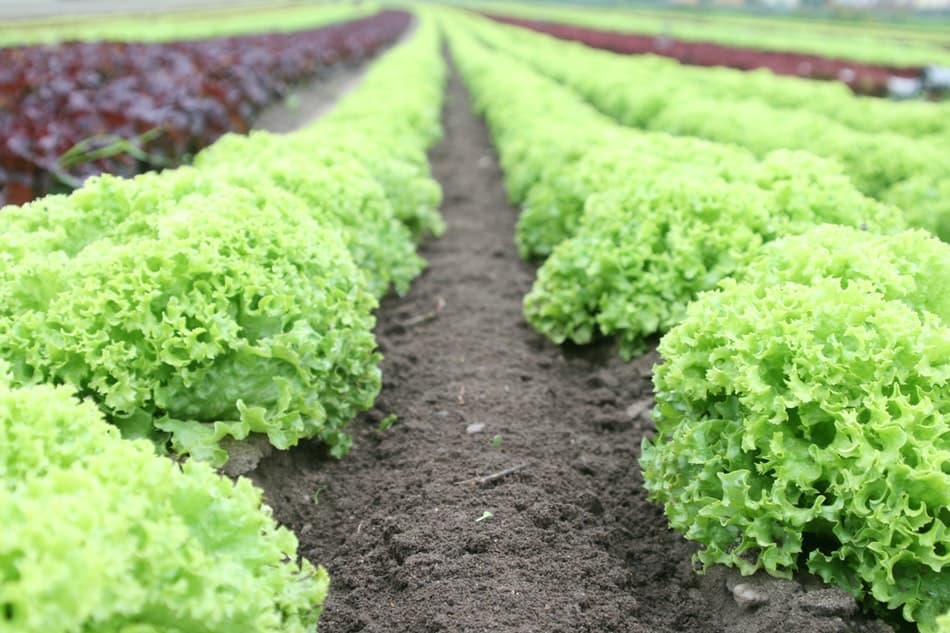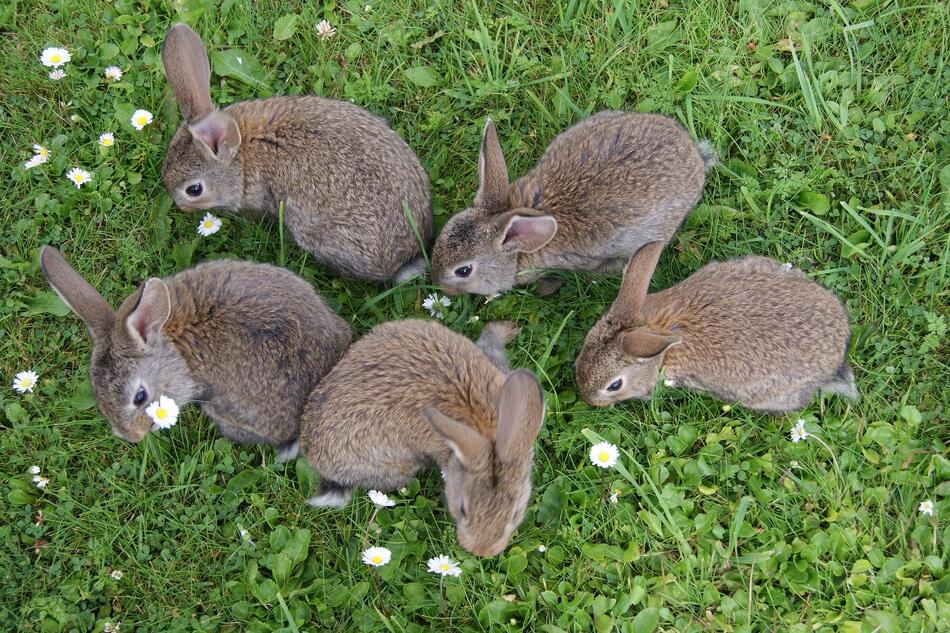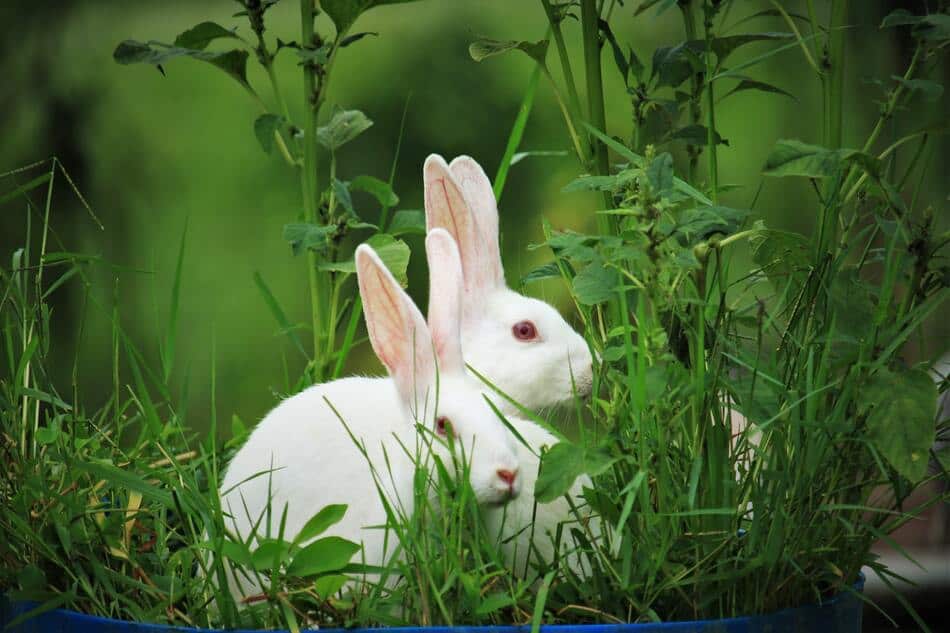Can rabbits eat Microgreens? While it is no news how nutritious microgreens are and the numerous benefits it gives to our body, most people often wonder if it is safe to feed microgreens to their pets.
Yes, rabbits can eat microgreens. Microgreens are vegetable greens that are harvested right after the cotyledon grows a set of leaves. They are rich in vitamins and minerals, making them a healthy option for rabbits. When feeding microgreens to your rabbit, make sure to introduce them slowly to avoid digestive problems.
In this article I will answer the question, can rabbits eat microgreens? And I will also highlight the healthiest types of microgreens for your rabbits. Read on!
What Is Microgreens?
Microgreens are an extremely popular and relatively new type of greens that have taken the culinary world by storm. These tiny greens pack a powerful punch of flavor and nutrition and are used as a garnish or addition to many different types of dishes. Microgreens are very young seedlings that are harvested just after they sprout from the ground. The most common microgreens are made from the seeds of vegetables and herbs, but they can also be made from the seeds of fruits, nuts, and even flowers. Microgreens are usually no more than 2 inches tall, and their delicate flavor is a perfect way to add a touch of flavor to any dish. Microgreens are also a great source of vitamins and minerals and are an excellent way to get your daily dose of greens.

Can Rabbits Eat Microgreens?
Microgreens of seven to fourteen days, and sprouts of around one to five days, are generally considered safe for rabbits. While hay can be their main source of food. Rabbits can benefit from a moderate number of microgreens about 10% to 30%. Microgreens are rich in vitamins, minerals, and antioxidants, and they can provide rabbits with several health benefits.
Even though microgreens are great for rabbits, they should not be used to replace your rabbit’s main meal course or diet, instead, microgreens should be added to their meals moderately as supplements or vegetables, or even as a treat!
What Are The Best Microgreens For Rabbits?
There is a lot of debate on what the best microgreens are for rabbits. The answer likely depends on your rabbit’s individual preferences. Some popular microgreens that are often recommended for rabbits include kale, dandelion greens, and cilantro. You may want to experiment with different types of microgreens to see which ones your rabbit enjoys the most
As a normal rule, steer clear from giving foods that are too spicy or hot. The following are several microgreens you can give to raise your rabbits healthily:
- Dandelion
- Turnip
- The Sunflower
- Mustard
- Lettuce
- Sprouted lentils
- Peas
- Wheatgrass
- Spinach
- Cucumber
- Barley
- Millet
- Collard
- Dill
- Corn
- Alfalfa
The list is not limited to the above, but, to utilize the best alternatives, it is advisable to consult with a veterinarian first to ensure that they are a good option for your pet. Generally, microgreens are good for your rabbits, as they may help improve digestive health and reduce inflammation.
What Are The Advantages Of Microgreens Over Other Greens?
Microgreens are young greens that are harvested after they have germinated and developed their first set of leaves. They are usually around 1-3 inches tall and can be eaten whole, including the stem and leaves.
Compared to other greens, microgreens are more nutrient-dense. This is because they are harvested at a young age when they are packed with nutrients and antioxidants. Microgreens have also been shown to have higher levels of vitamins C and E, carotenoids, and phenolic compounds than their mature counterparts.
In addition to being more nutrient-dense, microgreens are also more flavorful. This is because they have a higher concentration of essential oils and other flavor compounds. Microgreens can be used to add a burst of flavor to salads, soups, sandwiches, and other dishes.
Microgreens hold more water, are easy to dissolve, and are more tender compared to their other counterparts.
Finally, microgreens are also more attractive than other greens. They often have brightly colored stems and leaves, which can add visual interest to a dish. Microgreens can also be used as a garnish or decoration.

How To Feed Your Rabbit With Microgreens?
A lot of people think that feeding their rabbits microgreens is a difficult task, but it isn’t. All you need to do is purchase some quality microgreens, and then follow these simple steps:
1. Choose the right type of microgreen for your rabbit. Some good options include kale, spinach, and chard.
2. Wash the microgreens thoroughly, and then chop them into small pieces.
3. Add the microgreens to your rabbit’s food, or offer them as a treat.
4. Monitor your rabbit closely for any signs of digestive upset, such as diarrhea or vomiting. If you notice any problems, discontinue feeding the microgreens and consult your veterinarian.
With just a little bit of effort, you can easily add microgreens to your rabbit’s diet. Not only are they a healthy addition, but rabbits love them too!
Benefits Of Feeding Your Rabbits Microgreens
There are a lot of benefits microgreens add to your rabbit, there are also a few dangers. Below is a list of both the benefits and dangers.
Benefits:
1. Microgreens are an excellent source of nutrients for rabbits. They are high in vitamins, minerals, and antioxidants.
2. Microgreens can help improve your rabbit’s digestion and gut health.
3. Microgreens can help boost your rabbit’s immune system.
4. Microgreens can help improve the quality of your rabbit’s fur and skin.
5. Microgreens can help increase the level of playfulness in your rabbit.
Dangers:
1. If not fed properly, microgreens can cause digestive issues in rabbits.
2. Some microgreens, can contain high levels of oxalates which can be harmful to rabbits.
3. Feeding too many microgreens can lead to obesity in rabbits.
4. Microgreens can harbor bacteria and other contaminants that can be harmful to rabbits.
As you can see, there are both benefits and dangers to feeding your rabbit microgreens. It is important to do your research and consult with a veterinarian before adding any new food to your rabbit’s diet.
As you probably know, rabbits are very sensitive to changes in their diet and can easily get sick if they eat something they’re not used to. This is why it’s important to be careful about what kinds of microgreens you feed your rabbit, as some of them can be harmful.
So, if you’re going to feed your rabbit microgreens, make sure to only give them ones that are safe for them to eat. Stick to microgreens like alfalfa, clover, and parsley, which are all perfectly safe for rabbits to eat.
Conclusion
Rabbits can eat microgreens, while they are not a necessary part of a rabbit’s diet, they can provide some health benefits. Microgreens are healthy for them as they contain more nutrients compared to other vegetables. Get the best kind of microgreens for your rabbit, and watch them stay healthy!
RELATED TOPICS

